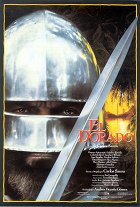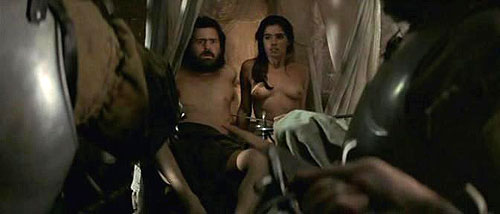Director:
Carlos SauraGuión:
Carlos SauraCámara:
Teo EscamillaMúsica:
Alejandro MassóReparto:
Omero Antonutti, Lambert Wilson, Eusebio Poncela, Inés Sastre, José Sancho, Francisco Algora, Féodor Atkine, Víctor Valverde, Claudio Rodríguez (más)Sinopsis(1)
En el mítico país de El Dorado las ciudades son de oro y los hombres cubren sus cuerpos con áureas vestimentas. Es la historia de Pedro de Ursúa, el atractivo y joven capitán de la expedición, vencedor de los negros cimarrones del Paraná. Es la historia de Lope de Aguirre, un vasco con sueños de gloria que se unió a la expedición de Ursúa para buscar lo que no había encontrado en su vida: la paz. Es la historia de Elvira, hija de Lope, la historia de doña Inés de Atienza, la mujer más bella del Perú; la historia del indio Uiracuru, guía de la expedición. Es la historia de 300 hombres que empeñaron sus haciendas y sus almas en el descenso del más grande e ignorado río del mundo. (Iberoamericana Distr.)
(más)Reseñas (1)
Of course, there is a comparison with Herzog's Aguirre, the Wrath of God, both are about the same historical figure, and at about the 40th minute I was telling myself "meh! It lacks the fatefulness and weight of Herzog's masterpiece", but from the violent death of the king's governor the film takes a big turn, delivering twist after twist, betrayal after betrayal. The story builds up nicely in the second half, and authenticity connoisseurs will be pleased with the faithful production design and some strong, unadorned murder scenes. The short post-film discussion with the director was a pleasure, Saura is a very funny man, he apologised for the excessive violence in the film, but said that he was only faithfully processing the chronicles of the time. He described Herzog's film as untrue, saying that Hezgog hadn’t bother much with with realism and facts, and, as an opponent of violence in film, he confided that this is why he doesn't appreciate Tarantino, even though Tarantino himself speaks very highly of Sauro. It made the whole cinema laugh.
()

